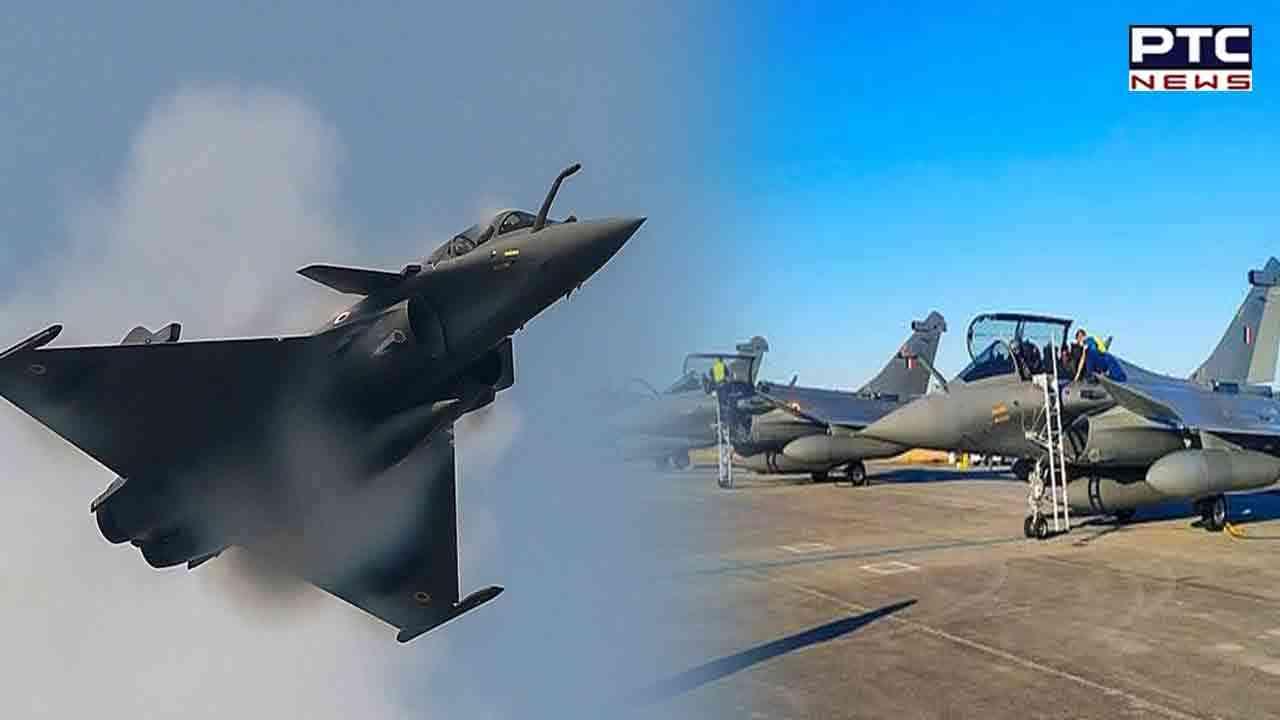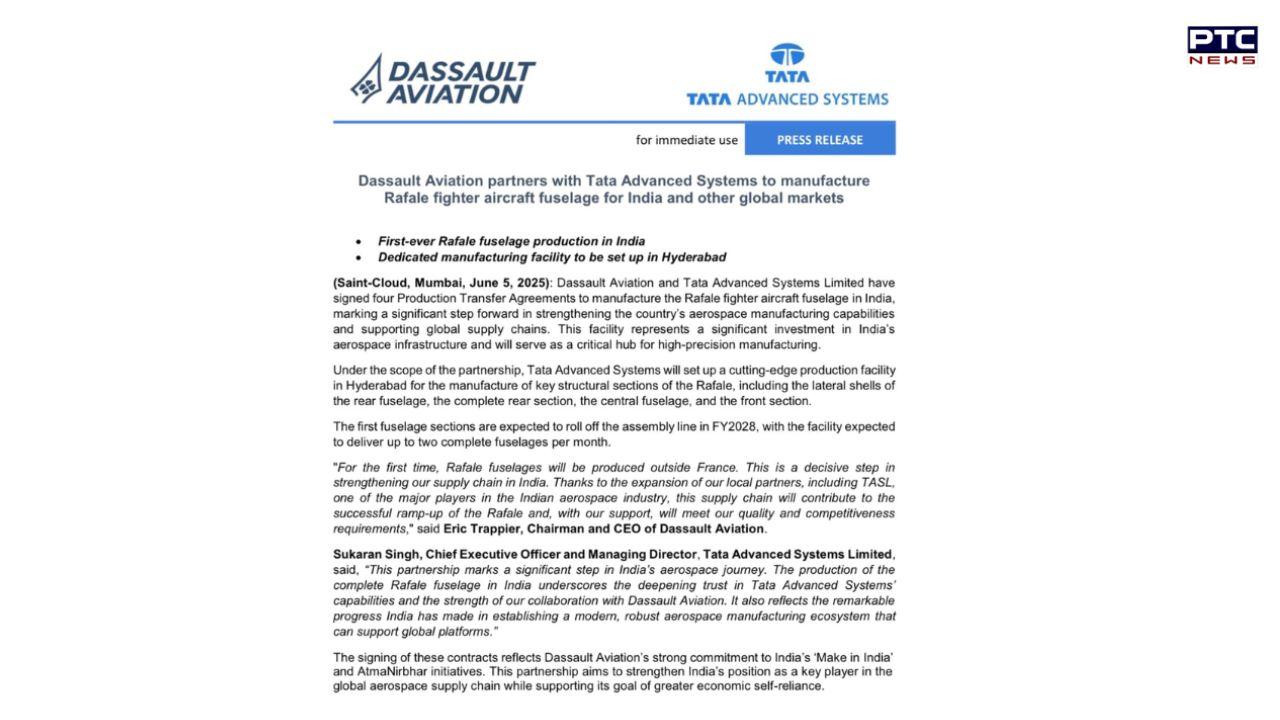PTC Web Desk: In a major development for India's defence manufacturing sector, Tata Advanced Systems Limited (TASL) has signed four production transfer agreements with France’s Dassault Aviation to locally manufacture the main fuselage of Rafale fighter jets in Hyderabad. This marks the first time ever that the central structure of the Rafale—a critical component of the aircraft—will be built outside France.
According to the agreement, the first fully assembled fuselage is expected to roll out from the Hyderabad facility by 2028. Once production begins, the plant is projected to manufacture two complete fuselage units every month. This initiative signals a significant step toward strengthening private sector participation in India's defence and aerospace industry.
Dassault Aviation called the project a “major leap” in the strategic defence collaboration between India and France. The move is expected to enhance India’s defence manufacturing capabilities while offering Indian engineers the opportunity to work with cutting-edge aerospace technology.
Tata Group has been a long-standing partner in the aerospace domain and already contributes components for both the Rafale and Mirage 2000 fighter aircraft. With this latest agreement, the partnership between Tata and Dassault deepens significantly.
Commenting on the development, Sukaran Singh, CEO of TASL, said, “This partnership is a defining moment in India's journey to becoming an aircraft manufacturing nation. The fact that Dassault trusts us to produce the Rafale fuselage shows growing confidence in our capabilities and highlights how far India has come in building a strong aerospace manufacturing ecosystem.”
What Is an aircraft fuselage?
The fuselage is the central body structure of an aircraft and is crucial to its overall design and performance. It is the largest component and serves as the primary structure to which other key parts such as wings, tail assembly, and engines are attached. In fighter jets, the fuselage also houses the cockpit, fuel systems, and in some configurations, the engine.
In supersonic aircraft like the Rafale, the fuselage is engineered to be sleek and aerodynamic to reduce air resistance at high speeds. For commercial aircraft, the fuselage is typically wider to accommodate passengers and cargo.
Roughly 40% of the Rafale’s fuselage is made from carbon-fibre composites—a material prized for its high strength-to-weight ratio. This not only helps reduce the overall weight of the jet but also enhances its speed and fuel efficiency. High-stress sections, especially around the engine, incorporate titanium due to its heat and pressure resistance. Additionally, aluminum-lithium alloys are used in several segments for their lightweight yet strong properties, while high-strength steel is employed in smaller joints and connectors to reinforce the structure.
The engineering precision required to balance strength, weight, and aerodynamics makes the fuselage one of the most technically demanding parts of any aircraft.
About Dassault Aviation
Founded in 1929 and headquartered in Saint-Cloud, France, Dassault Aviation is a renowned name in the global aerospace and defence sector. The company is the manufacturer of the Rafale and Mirage 2000 fighter jets, Falcon business jets, and a range of unmanned aerial systems.
India and Dassault Aviation have been strategic partners since 2016, following the deal to supply 36 Rafale jets to the Indian Air Force. In 2025, the partnership is expected to deepen further with the acquisition of 26 Rafale Marine aircraft for the Indian Navy.
Tata Advanced Systems
Established in 2007, Tata Advanced Systems Limited is the defence and aerospace arm of the Tata Group. Headquartered in Mumbai, TASL designs and manufactures components for aircraft, helicopters, drones, missile systems, and homeland security equipment.
The company has forged collaborations with several global defence majors, including Sikorsky, Boeing, Lockheed Martin, and now, Dassault Aviation. Its growing portfolio underscores India’s expanding footprint in the international defence supply chain.
- PTC NEWS



